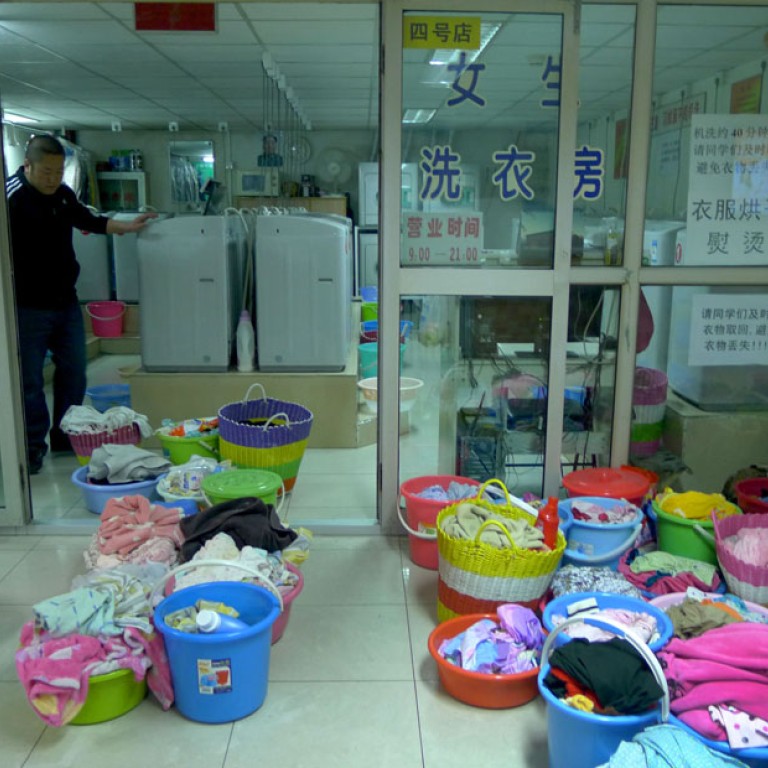
Practice among some Chinese students of mailing dirty laundry home prompts debate
Some students mail their laundry to their parents for washing, prompting a debate over the pros and cons of the unusual practice
University students are using express couriers to mail dirty laundry home so their parents can return it clean, according to the State Post Bureau.
Is this a sign of smart, efficient living in crowded dorms, or yet another example of youths from one-child families being pampered into a state of infant-adults?
"A big share of our express [post] services at the universities comes from the laundry of students," said Liu Liangyi, deputy director of the bureau's department that oversees market supervision.
Liu, speaking on the sidelines of the parliamentary sessions in Beijing, said some students waited until their laundry piled up before sending it home.
"Such new business reflects [how] people want to pay for convenience as they [become] better off," Liu said.
The news seemed relatively innocuous at the time, but Liu's remarks attracted wide attention in the media and online.
A woman in Changsha told the her son, who was studying in Chongqing, had been mailing laundry home every two months since he started university three years ago.
Far from being a wide trend, however, only a few university students were engaged in the practice, the newspaper said
A post office worker said there were plenty of laundromats around the campus, and given that courier costs exceeded laundromats' prices, most students did their own washing.
The interviewed 100 students from 10 colleges in the city, but none admitted to mailing home laundry.
Some parents told the newspaper they were willing to help wash clothes if their children sent them.
The Times noted that laundromats cost 3 yuan (HK$3.80) to 5 yuan per load, while inter-city express delivery services cost dozens of yuan for every 10kg.
The criticised students' inability to take care of their own laundry, suggesting many were overly pampered.
Most university students today were born in the 1990s into single-child families.
They may have received too much attention from their parents and grandparents, earning the post-1980s title as the "spoiled generation".
"Many factors might have contributed to the students' inability to care for themselves," said.
"The most important one is a lack of family education. Parents have spoiled their children and asked them to focus only on studying, while taking over many responsibilities that should be shouldered by the children themselves."
There have been several reports in local newspapers about parents over-indulging their offspring.
The reported on a mother who flew thousands of kilometres from the northeastern city of Harbin to bring cold medicine to her daughter, who was studying in Shandong province.
"Parents should send the laundry back as it is and leave the children to handle it themselves. [Making] children independent is the most responsible action parents should do," said the .
The argued there was a valid reason for mailing laundry.
"Even if there are many students who mail clothes back home, they might be doing so only when the seasons change," it said. "They send the clothes that are [inappropriate] for the season back home to save [space in] their dormitories."
"This doesn't [mean] that students are lazy or spoiled. On the contrary, it reflects the fact that young students are quite smart in arranging their daily lives," the newspaper said.
It concluded the dirty-laundry trend was not as big as Liu described. "Liu might exaggerate the facts to highlight the convenience that express service brings to the public."
